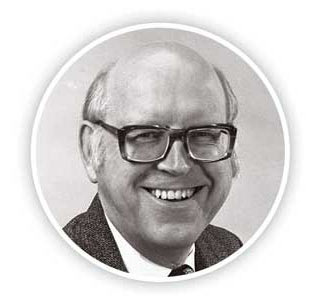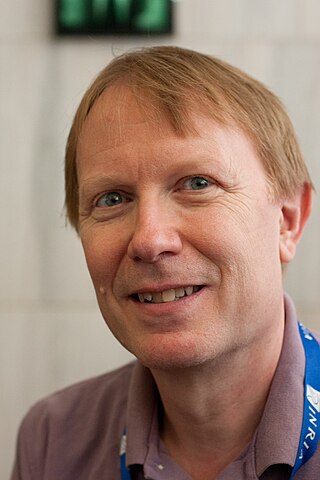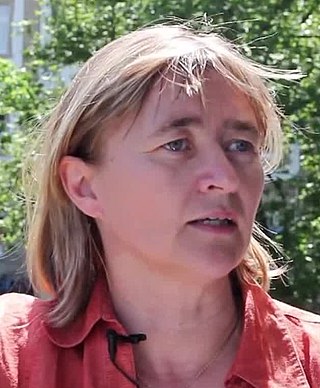Related Research Articles

The School of Computer Science (SCS) at Carnegie Mellon University in Pittsburgh, Pennsylvania, US is a school for computer science established in 1988. It has been consistently ranked among the top computer science programs over the decades. As of 2022 U.S. News & World Report ranks the graduate program as tied for second with Stanford University and University of California, Berkeley. It is ranked second in the United States on Computer Science Open Rankings, which combines scores from multiple independent rankings.

Allen Newell was an American researcher in computer science and cognitive psychology at the RAND Corporation and at Carnegie Mellon University’s School of Computer Science, Tepper School of Business, and Department of Psychology. He contributed to the Information Processing Language (1956) and two of the earliest AI programs, the Logic Theory Machine (1956) and the General Problem Solver (1957). He was awarded the ACM's A.M. Turing Award along with Herbert A. Simon in 1975 for their basic contributions to artificial intelligence and the psychology of human cognition.

Chester Gordon Bell is an American electrical engineer and manager. An early employee of Digital Equipment Corporation (DEC) 1960–1966, Bell designed several of their PDP machines and later became Vice President of Engineering 1972–1983, overseeing the development of the VAX computer systems. Bell's later career includes entrepreneur, investor, founding Assistant Director of NSF's Computing and Information Science and Engineering Directorate 1986–1987, and researcher emeritus at Microsoft Research, 1995–2015.
Murray Campbell is a Canadian computer scientist known for being part of the team that created Deep Blue; the first computer to defeat a world chess champion.

The Human–Computer Interaction Institute (HCII) is a department within the School of Computer Science at Carnegie Mellon University (CMU) in Pittsburgh, Pennsylvania. It is considered one of the leading centers of human–computer interaction research, and was named one of the top ten most innovative schools in information technology by Computer World in 2008. For the past three decades, the institute has been the predominant publishing force at leading HCI venues, most notably ACM CHI, where it regularly contributes more than 10% of the papers. Research at the institute aims to understand and create technology that harmonizes with and improves human capabilities by integrating aspects of computer science, design, social science, and learning science.
Alexander G. Hauptmann is a Research Professor in the Language Technologies Institute at the Carnegie Mellon University School of Computer Science. He has been the leader of the Informedia Digital Library which has made seminal strides in multimedia information retrieval and won best paper awards at major conferences. He was also a founder of the international advisory committee for TRECVID.
The Language Technologies Institute (LTI) is a research institute at Carnegie Mellon University in Pittsburgh, Pennsylvania, United States, and focuses on the area of language technologies. The institute is home to 33 faculty with the primary scholarly research of the institute focused on machine translation, speech recognition, speech synthesis, information retrieval, parsing, information extraction, and multimodal machine learning. Until 1996, the institute existed as the Center for Machine Translation, which was established in 1986. Subsequently, from 1996 onwards, it started awarding degrees, and the name was changed to The Language Technologies Institute. The institute was founded by Professor Jaime Carbonell, who served as director until his death in February 2020. He was followed by Jamie Callan, and then Carolyn Rosé, as interim directors.

Jaime Guillermo Carbonell was a computer scientist who made seminal contributions to the development of natural language processing tools and technologies. His extensive research in machine translation resulted in the development of several state-of-the-art language translation and artificial intelligence systems. He earned his B.S. degrees in Physics and in Mathematics from MIT in 1975 and did his Ph.D. under Dr. Roger Schank at Yale University in 1979. He joined Carnegie Mellon University as an assistant professor of computer science in 1979 and lived in Pittsburgh from then. He was affiliated with the Language Technologies Institute, Computer Science Department, Machine Learning Department, and Computational Biology Department at Carnegie Mellon.

Edmund Melson Clarke, Jr. was an American computer scientist and academic noted for developing model checking, a method for formally verifying hardware and software designs. He was the FORE Systems Professor of Computer Science at Carnegie Mellon University. Clarke, along with E. Allen Emerson and Joseph Sifakis, received the 2007 ACM Turing Award.

Manuela Maria Veloso is the Head of J.P. Morgan AI Research & Herbert A. Simon University Professor in the School of Computer Science at Carnegie Mellon University, where she was previously Head of the Machine Learning Department. She served as president of Association for the Advancement of Artificial Intelligence (AAAI) until 2014, and the co-founder and a Past President of the RoboCup Federation. She is a fellow of AAAI, Institute of Electrical and Electronics Engineers (IEEE), American Association for the Advancement of Science (AAAS), and Association for Computing Machinery (ACM). She is an international expert in artificial intelligence and robotics.

Pradeep Kumar Khosla is an Indian-American computer scientist and university administrator.

Shree K. Nayar is an engineer and computer scientist known for his contributions to the fields of computer vision, computational imaging, and computer graphics. He is the T. C. Chang Professor of Computer Science in the School of Engineering at Columbia University. Nayar co-directs the Columbia Vision and Graphics Center and is the head of the Computer Vision Laboratory (CAVE), which develops advanced imaging and computer vision systems. Nayar also serves as a director of research at Snap Inc. He was elected member of the US National Academy of Engineering in 2008 and the American Academy of Arts and Sciences in 2011 for his pioneering work on computational cameras and physics based computer vision.

Joseph S. B. Mitchell is an American computer scientist and mathematician. He is Distinguished Professor and Department Chair of Applied Mathematics and Statistics and Research Professor of Computer Science at Stony Brook University.

Jitendra Malik is an Indian-American academic who is the Arthur J. Chick Professor of Electrical Engineering and Computer Sciences at the University of California, Berkeley. He is known for his research in computer vision.

Eric Poe Xing is an American computer scientist, academic administrator, and entrepreneur. Prior to his appointment as President of MBZUAI, Xing was a professor in the School of Computer Science at Carnegie Mellon University and researcher in machine learning, computational biology, and statistical methodology. Xing is also the Founder, Chairman, Chief Scientist, and former CEO of Petuum Inc.

Peter Stone is an American computer scientist who is the David Bruton Jr. Centennial Professor of Computer Science at the University of Texas at Austin. He is also an Alfred P. Sloan Research Fellow, Guggenheim Fellow, AAAI Fellow, and Fulbright Scholar.
Ariel D. Procaccia is the Gordon McKay Professor of Computer Science at Harvard University. He was previously an associate professor of computer science at Carnegie Mellon University. He is known for his research in artificial intelligence (AI) and theoretical computer science, especially for his work on computational aspects of game theory, social choice, and fair division. He is the founder of Spliddit, a fair division website.

Michael James Carey is an American computer scientist. He currently serves as Bren Professor of Information and Computer Science in the Donald Bren School at the University of California, Irvine.
Roni Rosenfeld is an Israeli-American computer scientist and computational epidemiologist, currently serving as the head of the Machine Learning Department at Carnegie Mellon University. He is an international expert in machine learning, infectious disease forecasting, statistical language modeling and artificial intelligence.

Tanja Schultz is a German computer scientist specializing in speech processing. She is professor of computer science at the University of Bremen and the former president of the International Speech Communication Association.
References
- ↑ "Eric Nyberg". Carnegie Mellon University Master of Computational Data Science.
- 1 2 "2013 CS Distinguished Alumnus: Eric Nyberg (CAS '83)".
- 1 2 "Nyberg Receives BU Distinguished Alumnus Award".
- ↑ Spice, Byron (2011-02-11). "Press Release: CMU and IBM Collaborate on Open Computing System For Advancing Research on Question Answering".
- ↑ "The Allen Newell Award for Research Excellence - Previous Winners".